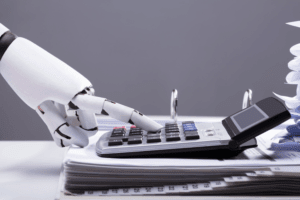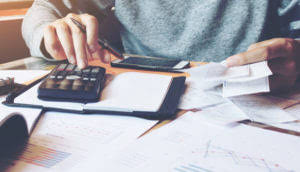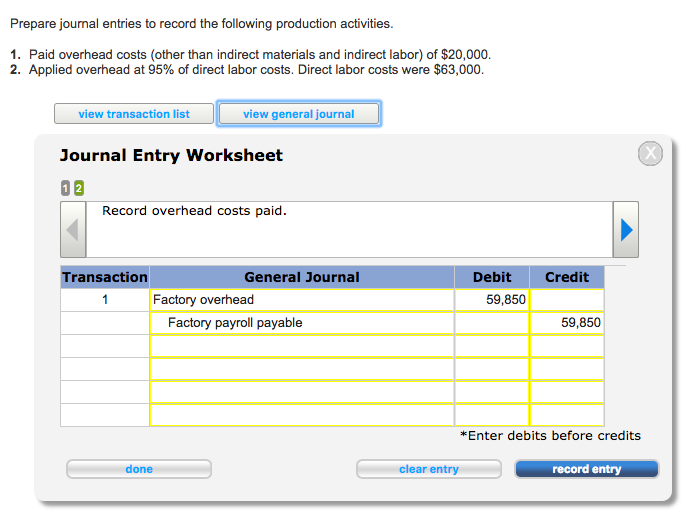The Art of Sole Trader Bookkeeping: A Guide to Financial Success

If you’re tech-savvy, digital options can offer automatic calculations and real-time financial monitoring, much like a GPS for your finances. But, if you’re a fan of the traditional approach, ledger books offer a tangible, hands-on method, but require more effort to maintain. Carry out these practices from the get-go to keep your financial health in check. Regularly update your records — set aside time each week for this task.
Personal Tax

This includes managing invoices and receipts, tracking income and expenses, and monitoring bank transactions. A sole trader is a self-employed individual who owns and operates their own business. https://www.bookstime.com/ As a sole trader, you are responsible for all aspects of your business, including bookkeeping.
Bookkeeping for a better business

As a sole proprietor, the owner must handle all bookkeeping and accounting themselves or hire an accountant. Robust accounting is essential for making informed decisions, securing financing, paying proper taxes, and enabling growth. Bookkeeping for a sole trader is not too different from bookkeeping for other small businesses. Anyone who earns income must track their business finances and file tax returns. The most striking difference is simply the need for self-assessments and the likelihood of business owners doing their bookkeeping themselves. For example, you might be able to use invoicing tools that send and chase invoices on your behalf.
- Consider working with professionals to manage your bookkeeping and accounting needs effectively.
- If you’re thinking about setting up on your own and haven’t already registered as a sole trader with HMRC, you can find out how to set up as a sole trader here.
- However, amid the excitement of entrepreneurship, it’s vital to ensure your finances are in order.
- Some sole traders opt for the DIY approach using spreadsheets, while others might use accounting software—like a trusty autopilot—to streamline invoicing, expenses, and tax returns.
- These terms are often used interchangeably to describe individuals who work for themselves but there is a difference.
- They can categorise expenses and generate reports more efficiently than manual methods.
Key Components of Bookkeeping for Sole Traders:
Accounting software like QuickBooks, Xero, or FreshBooks is recommended for sole traders. They help in efficiently tracking income and expenses, simplifying the preparation of financial statements and tax returns. Many sole traders opt for accounting software to streamline their bookkeeping processes. Software options like QuickBooks, Xero, and Wave allow you to track income and expenses, generate financial reports, and even prepare tax documents with ease. As a sole trader, it’s crucial to keep accurate financial records of all the money coming in and going out of your business.
Creating Cash Flow Projections: Predicting the Future
You need to pay Class 2 if your annual income is over £6,475 and Class 4 if it’s over £9,501. Your laptop (capital) is a long-term asset while your internet bill (revenue) is a day-to-day expense. Mobile accounting apps can be your best mate, allowing quick updates on your financials between client meetings fixed assets or while sipping your morning coffee.

Bookkeeping requirements are much lower than that at a private or public limited company, so there is no need to overcompensate. A bookkeeper records and maintains accurate records while an accountant makes sense of financial data. You are not expected to perform in-depth financial analysis, but keeping track of your accounting records is important. Making Tax Digital is a UK government initiative intended to make tax paying simpler and more accurate. Accounting software is less prone to human error than manual records.
- Your income streams are like the taps filling it up, and expenses are the various outlets letting water out.
- See your business money come in and out over time, so you can make smarter business decisions.
- It can help you plan for your business’s future and save you time and money during tax season.
- You’re not just running a business; you’re steering a ship where every penny counts and understanding the flow of your finances is crucial.
You might also have access to accounting software which can make it easier to juggle your finances. Some accounts include savings pots where you can set aside money for tax payments and other expenses. Forecasting your cash flow and future tax liabilities is essential for any sole trader. By forecasting your cash flow, you can ensure that you have enough funds to cover your expenses, pay your taxes, and invest in your business. To do this, you should create a cash flow statement that outlines your expected income and expenses for the next few months.
Welcome to our Support Center
Without accurate financial records, it can be difficult to make informed decisions about the future of the business. Seeking professional assistance when needed is an essential tip for effective sole trader bookkeeping. As a small business owner in Australia reconciling bank accounts alone may not always be practical because it often requires expertise outside their area of specialty. The next crucial tip for effective sole trader bookkeeping is regularly reviewing financial statements. Financial statements such as bookkeeping for sole trader profit and loss reports allow you to see the overall health of your business at a glance.







Bình Luận